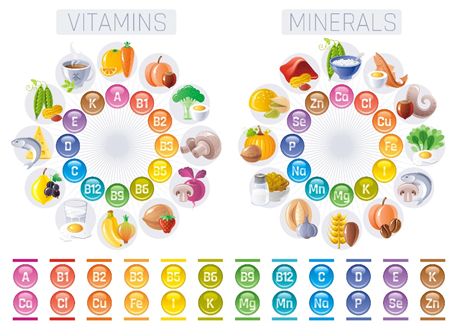When it comes to maintaining a healthy diet, most people focus on consuming enough macronutrients such as carbohydrates, proteins, and fats. However, micronutrients play an equally important role in supporting overall health and well-being. In this article, we will explore the importance of micronutrients in your diet and the impact they can have on your overall health.
What Are Micronutrients?
Micronutrients are essential vitamins and minerals that our bodies require in small amounts to function properly. While they may be needed in smaller quantities compared to macronutrients, micronutrients play crucial roles in various bodily functions such as metabolism, immune function, and cell repair.
The Importance of Micronutrients
Consuming an adequate amount of micronutrients is crucial for maintaining optimal health and preventing nutrient deficiencies. Micronutrients are involved in numerous physiological processes, including:
Energy production: Micronutrients such as B vitamins and iron play a key role in converting food into energy that our bodies can use for various functions.
Immune function: Vitamins like vitamin C and zinc are essential for supporting a healthy immune system and protecting against infections.
Cellular repair: Micronutrients like vitamin E and selenium help protect our cells from damage and support the repair process.
Common Micronutrients to Include in Your Diet
There are several key micronutrients that you should aim to incorporate into your daily diet to ensure optimal health and well-being. Some of the most important micronutrients to include in your diet include:
Vitamin D: Essential for bone health, immune function, and overall well-being. Sources include sunlight, fatty fish, and fortified foods.
Iron: Critical for the production of hemoglobin, the protein that carries oxygen in our blood. Sources include red meat, beans, and leafy green vegetables.
Vitamin C: A powerful antioxidant that supports immune function and collagen production. Sources include citrus fruits, strawberries, and bell peppers.
Calcium: Essential for bone health, muscle function, and nerve transmission. Sources include dairy products, leafy green vegetables, and fortified foods.
How to Ensure You’re Getting Enough Micronutrients
To ensure you’re getting an adequate amount of micronutrients in your diet, it’s important to focus on consuming a variety of nutrient-dense foods. Include a wide range of fruits, vegetables, whole grains, lean proteins, and healthy fats in your meals to cover all your nutrient needs. If you have specific dietary restrictions or nutrient deficiencies, consider consulting with a registered dietitian or healthcare provider to determine the best course of action.
Final Thoughts
While macronutrients like carbohydrates, proteins, and fats are often in the spotlight when it comes to diet and nutrition, micronutrients play a critical role in supporting overall health and well-being. By paying attention to your micronutrient intake and ensuring you’re consuming a variety of nutrient-dense foods, you can maintain optimal health and prevent nutrient deficiencies in the long run. Remember, a balanced diet rich in micronutrients is key to supporting your body’s many functions and staying healthy.
